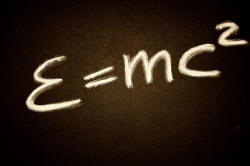Indefinite or impersonal pronouns

This guide deals with pronouns other than the personal pronouns
(i.e., I, me, him, her, yourself, your etc.) or pronouns
identifying a specific noun (it, they etc.).
In that sense only, we are talking about impersonal
or indefinite
pronouns, although the term is horribly inexact because these pronouns often
refer to people and in the case of some categories, to particular
individuals or things.
For the sake of conciseness and clarity, we'll also use the term indefinite
pronouns because these pronouns do not refer to particular
people or things in the way that you, me, it, they, them, ourselves
etc. do.
In summary, these pronouns are either impersonal or indefinite
(and sometimes both).
There is
a separate guide to personal pronouns on this site.
 |
Classification |
Apart from the three forms of personal pronouns (personal: I, me, you, they etc., reflexive: myself, themselves, ourselves etc. and genitive / possessive: my, your, his, mine, their etc.), there are the following main classes of pronouns and this guide will take them one at a time.
 |
Is it a pronoun or determiner? |
Because most of the words analysed in the guide can act as pronouns or determiners, it's worth pausing to explain the difference.
- Determiners come before nouns, noun phrases or pronouns and often have an alternative of or of the construction:
- Both parents are here
Both of the children are here
Neither of them want to be here
Which of the books do you want?
Those of us who don't want to see the film will go and eat
I want that book
etc. - Pronouns proper replace the noun to which they refer and do not have the alternative of constructions. Some pronouns, especially which and that can stand for entire clauses. They can stand as the subject or object of a verb:
- Both have arrived
Neither is useful
Which do you want?
Those are nice
That was interesting
I enjoyed those
I gave everything away
etc.
Determiners and pronouns are closely related word classes with many items acting in both roles. Here's the list:
| determiners or pronouns: | ||
| demonstratives: this, that, these, those, the former ... the latter | ||
| determiner use | pronoun use | To this list, some
would add the one ... the other as in, e.g.: We must use the one solution or the other |
| I want that book | I want that | |
| Let me have those tomatoes | No, not those, these | |
| He gave me this PC | She sold this | |
| The former solution is the best | I prefer the latter | |
| quantifiers: | ||
| some and any | ||
| determiner use | pronoun use | The some-series
is reserved for assertive uses usually and the any-series
for non-assertive uses. For more on this, see the guide to assertion and non-assertion linked in the list of related guides at the end. |
| I'd like some coffee | I'd like some | |
| I don't have any money | I don't have any | |
| many and much | ||
| determiner use | pronoun use | many can occur
in assertive and non-assertive sense. much is generally confined to non-assertive negative or question structures. |
| We don't have many friends | We have many at home | |
| There's isn't much butter | I can't see much | |
| enough, a lot of, several | ||
| determiner use | pronoun use | enough and
a lot of can be used assertively or non-assertively and
for mass or count nouns. several is confined usually to assertive uses with count nouns only. |
| We have enough sugar | We have read enough | |
| They have a lot of space | We don't have a lot | |
| They have several books with them | I have several | |
| few, fewer, fewest, a few and little, less, least, a little | ||
| determiner use | pronoun use | Traditionally, and
prescriptively, few, fewer, fewest, a few are
confined to count nouns and little, less, least, a little are confined to mass nouns but there are exceptions in use and the distinction is sometimes slightly fuzzy: There are fewer people here There are less people here than I expected We have the fewest data We have the least data would all be acceptable according to circumstance, setting and level of formality. |
| There are few things he likes | He sold few | |
| We have fewer complaints | The fewest we need is six | |
| There are a few things to say | I brought a few | |
| There is little beer in the fridge | They sold little | |
| People have less money these days | Take less, please | |
| I have the least luggage | She wants least | |
| We have a little time | I'll only take a little | |
| more and most | ||
| determiner use | pronoun use | When most is a
pronoun it is often indistinguishable from its use as a
determiner but with an omitted noun. See the note below. |
| Have more cake | Have more | |
| She spent most days in bed | She wasted most | |
| either and neither | ||
| determiner use | pronoun use | The pronoun use of these two words is unusual and often slightly formal. |
| Take either book | Can I have either? | |
| Take neither book | You can have neither | |
| each | ||
| determiner use | pronoun use | The pronoun use is unusual and formal. |
| Each child got a present | They gave a present to each | |
| all, half, both | ||
| determiner use | pronoun use | As a pronoun all
is unusual. These three items can also be pre-determiners. See the link below for more. |
| Take all the food | Winner takes all | |
| Give me half the money | Give me half | |
| Can I have both cases? | Take both | |
| numerals | ||
| determiner use | pronoun use | The use of numerals as pronouns is debatable because it is almost always possible to recover a unique noun which has been elided. |
| I want six beers | Bring me seven | |
| Only determiners: no and every | ||
| determiner use | pronoun use | The pronoun for no
is none (which cannot function as a determiner). The pronoun for every is everyone, -body, -thing (and none can act as a determiner). |
| She has no money | *She has no | |
| Every child got a present | *The gave a present to every | |
| Only pronouns: none, some-, any- and no-series, others | ||
| determiner use | pronoun use | See above for the
relationship between no and none. The determiner equivalents of the -thing, -one, -body series are the bare some, any and every items. other is a determiner equivalent of others. |
| *I took none books | I took none | |
| *Somebody people called | Somebody called | |
| *Does anyone child need lunch? | Does anyone want this? | |
| *They arrived with others people | They arrived with others | |
It is not always a simple matter to identify whether words are
acting as pronouns per se or simply that the noun phrase
which they determine has been elided.
In spoken discourse, the latter is often the case as in, for
example:
Would you like some cake?
No, thanks, I don't want any (cake)
or
I asked for three keys but they only sent two (keys)
where the noun is elided and any and two retain
their determiner status.
At other times, it is clear that the item is acting as a pronoun in
its own right because the noun is not easily recoverable from the
context or could be a wide range of possible phrases. For example:
We have done enough (work?, damage?, business? etc.)
If you would like this list as a PDF document, click here.
In some analyses, the pronouns one and ones are
considered the pronoun equivalent of indefinite articles or the
determiner some as in, for
example:
Do you want a biscuit?
Yes, I'll have one
Do you want some biscuits?
Yes, the chocolate ones, please
 |
relative pronouns |
This group includes the wh- series (who, which etc.), that and the zero pronoun. For more, see the guide to pronoun relative clauses where each pronoun is covered. Five examples will be enough here:
- The car which had the accident is in the workshop (which refers back, anaphorically, to the car as all relative pronouns refer back to their nouns)
- The man whose wallet you found is coming to collect it (a possessive relative pronoun which cannot be omitted)
- The man [∅] acting the fool is my brother (a reduced relative clause with the pronoun and the verb be omitted. The full form would be The man who is acting the fool. There is a good argument here that this is not a relative clause at all but an example of a participle clause post-modifying the noun)
- The person [∅] we want is on holiday today (with the relative pronoun, who(m) omitted as is allowed when it stands for the object of the verb in a defining relative clause)
- That's the car that he sold (with that as the relative pronoun in a defining relative clause, informally)
 |
interrogative pronouns |
These look exactly the same as the wh- relative pronouns
but perform a different function. The clue's in the name.
One addition to the list is what which is only colloquially
(illiterately, if you prefer) used as a relative pronoun (The
man what I saw).
The category is quite simple so a few examples will be enough.
- Who came to the meeting? (pronoun usually for people only)
- Which is your jacket? (pronoun for objects, used when faced with a selection)
- What do you think? (pronoun in the same meaning as which but used when there is no or a nearly infinite selection)
- Whose hat is this? (possessive interrogative pronoun)
- Whom did you see? (object case pronoun becoming ever rarer and replaced by who)
Both which, whose and what also act commonly as determiners (which computer, what house, whose car) but still in interrogative sentences in this case.
 |
demonstrative pronouns |
This is a closed class traditionally containing only this, that, these and those. They are distinguished by number and by whether they refer to something near or far. There are a number of uses:
- discourse markers
- The pronouns are used to make text cohere and point to what
is to follow (cataphoric reference) or what precedes (anaphoric
reference). For example:
This is what I mean ... →
← ... and that is the reason I'm late
I want to suggest these. →
← ... so those are my reasons for not voting
The demonstrative pronouns this and these can be used to refer forward (cataphorically) and back (anaphorically) but that and those can only refer anaphorically.
In this role, the pronouns can substitute for a variety of phrase types and clauses but there are some restrictions.
The pronouns this and that can substitute for a noun phrase, a prepositional phrase or a verb phrase:
He wanted the book on Venezuela but that I couldn't find
I have only $5 with me but this I will happily lend you
She opened a restaurant on the corner and that was a bad position
You can put it in the middle and this is a good place for it
They wanted me to help them but that I couldn't do
He has arrived too early and this is awkward for the host
The pronouns these and those can only usually stand for noun phrases but it is possible to have plural prepositional phrases as in, for example
They opened shops in the town centre and by the station but these were bad choices
Verb phrases are conceived as singular so:
*I have done the gardening and fixed the car and these / those were hard work
is very questionable if not wrong. - determiners
- The pronouns that and those only have a determiner function
in, for example:
Those who don't come to the meeting will be able to vote by post
That which I really dislike is ... (This is a formal and rather rare use. Normally, what is preferred to that which.) - pointing (deictic function)
- This is the most familiar use. For example:
This is my boss, Mary
These are the people I wanted you to meet
Those are my roommates
That is her husband
These words can only be used for impersonal objects of verbs unless they are followed by a noun such as person and are functioning as determiners:
I will use that key to open the door
I will use that to open the door
We will elect that person as our representative
*We will elect that as our representative
We want these people thrown out
*We want these thrown out - pronoun reference
- It is often difficult to distinguish this from the
determiner use:
I want that (pronoun)
I want that book (determiner)
She selected those (pronoun)
I think this coat would suit me (determiner)
I think this would suit me (pronoun)
With the pronouns, it is optional to use one(s), as in I want those ones. If one(s) is included, the words act more as determiners of another pronoun.
As pronouns, the uses are slightly more restricted than they are when the words are determiners. All four can be used as pronouns to refer to both people and things in positive and negative sentences so we allow:
Those are my books
These are the men you asked to see
That isn't the manager who was here before
This is the child I told you about
etc.
but in questions, while we accept:
Who is that?
Who is this?
we do not usually accept:
*Who are those?
*Who are these? - other demonstrative pronouns
- While it is traditional to limit demonstrative pronouns to
this, that, these and those, two other
pronouns act in a very similar way but come in pairs:
- the former and
the latter, for
example:
Both John and Mary went to live abroad; the former in America, the latter in France - the one and
the other
There is a clear potential benefit and a drawback. We must try to take advantage of the one while minimising the danger of the other
- I have cut the grass and washed the car. The former took longer but the latter needed doing more badly
- I tried hanging it in the the hall and in the living room. The former looked OK but the latter was much better
- I have cut the grass and washed the car. The former took longer
- I tried hanging it in the the hall and in the living room. The latter was much better
You must study harder or give up university altogether. Do one or do the other.
and the definite article is dropped in this case on the first item but not the second, perversely.
The one and the other do not act as substitutions for prepositional phrases and cannot appear separately.
These are functionally demonstrative pronouns and can be taught that way. - the former and
the latter, for
example:
 |
universal pronouns |
These are: everyone, everybody, each, everything, all. They fall into three categories:
- personal and impersonal
- everyone and everybody can only be used for people. The others can be used for people and objects.
- count and mass
- Only all is used for mass nouns. We can have all (the) sugar and all (the) potatoes but we cannot have *every sugar, *each sugar etc.
- singular and plural
- Again, only all
can be used for plurals. We can have they are
all rude
but not *everyone are
rude
- every, each and all also act frequently as determiners rather than pronouns proper. For example:
- Every guest received a
written invitation
Each guest received a written invitation
All guests received a written invitation - each and all can act as pronouns, albeit slightly formally:
- Three people came and I gave
each a pen and a
piece of paper
Twenty people arrived and all found a seat - every
cannot act alone as a pronoun. It must be
combined with -thing or -one to do that.
Its sole use is as a determiner, therefore. (But some
and any can act as both pronouns and determiners [see
below].)
 |
multal and paucal pronouns |
You will not be alone if you have not heard these terms (they
defeat most spell checkers) but they are the usual ones used for
these two sets of pronouns.
This group consists of:
Multal pronouns: many, more, much, most
Paucal pronouns: few, fewer, fewest, little, less, least
There is only one fundamental distinction with all of them:
mass vs. count noun use:
- count
- many, more, most and few, fewer, fewest
are used with count nouns:
If we are talking, e.g., about friends we can say:
He doesn't have many but she has more and most are in London
They have few but she even fewer; the fewest of anyone I know. - mass
- more much most and little, less, least are
used with mass nouns:
Speaking, e.g., of food, we might have:
We don't have much, but more than most
We have a little, and less every day but they have the least.
Notes:
- The distinction between a little and little
and between a few and few is that the
structures with a imply enough and the structures
without a imply an inadequate amount.
I have little interest and few opportunities to go
She has a few friends and takes a little interest in their welfare - Only real pedants will insist on not using less for
count nouns as in, e.g.
You have travelled less miles than me
and, in fact, the use of less is routine for measurements, amounts of money and times
less than two years
less than 10 feet
less than €5
etc.
However, the uses of few and fewest for count nouns only are still common, particularly in written and more formal language.
 |
reciprocal pronouns |
This is a small group consisting of just two multi-word pronouns:
- each other
- E.g., They really dislike each other
- one another
- E.g., They were all talking to one another about the play
The clue to the function of these two lies in the name: they are used when two or more nouns are doing the same thing and doing it reciprocally.
Generally, one another is slightly more formal and less
common. There are those who will insist that one another
may only be used to represent more than two nouns but that is not a
sustainable position although sentences such as
John and Mary
were talking to one another
sound odd to many people.
Using each other is a safe bet in all circumstances.
 |
some and any |
The usual distinction here is to assert that the some-
series is used in positive statements (that is to say, assertive
uses) and the any-
series in negatives and interrogatives (or non-assertive uses), so we get, e.g.:
Somebody told him
Has anybody arrived yet?
I don't want anything to eat
There are, however, a few issues:
- We need to distinguish by function not grammar. An
offer is not a question so there is a difference between:
Do you want anything to eat? (Are you hungry?)
and
Would you like something to eat? (I'm offering some food.) - Similarly, the speaker's understanding is important.
There is a difference between:
Has somebody sent you a letter?
and
Has anybody sent you a letter?
In the first, the speaker may either have a person in mind or may be sure that a letter has arrived. The second implies neither of those. - Negatives are not only achieved with the use of not:
Negative adverbials:
He never goes anywhere (no, neither, nor work the same way)
He hardly does any work (hardly, nearly, almost, little few etc. work the same way)
Negative verbs:
They failed to prevent any of the consequences
(other negative verbs such as forget, stop, abort, destroy etc. work the same way)
Negative adjectives:
He's reluctant to do any more
(other negative adjectives such as hard, difficult, impossible etc. work the same way) - The pronoun any also means no matter who, no
matter what:
She eats anything
Ask anyone
Anyone can come
As with the other pronouns, there are distinctions:
- personal and impersonal
- somebody, someone, anybody, anyone are reserved for
people
something, anything are reserved for objects - mass and count
- only some and any can be used for mass nouns
- plural and singular
- only some and any can be used in the plural
 |
negative pronouns |
These are nobody, no-one, nothing, neither, none.
- personal and impersonal
- nobody, no-one, nobody are reserved for people
nothing is always for objects
none and neither can be used for both
Nobody came
No-one deserved the prize
Nothing was there
I asked my friends but none came
I asked my brothers but neither came
I wanted the beef but none was available
I wanted one of the cars but neither was in my price range - mass and count
- only no and none can be used for mass nouns
- plural and singular
- only no and none can be used in the plural
Concord issues

none is grammatically singular:
She is waiting for her friends but
none has arrived
is
grammatically correct but, because of the proximity of the
plural noun, many prefer
She is waiting for her friends but none
have arrived
The insertion of the preposition of often requires, or at
least allows, the plural verb form so we can have either:
She is waiting for her friends but
none of them has arrived
or
She is waiting for her friends but
none of them have arrived
neither is also grammatically singular so we have
Neither of her friends has arrived
but, again, because of the notion that we are referring to two
people we also hear:
Neither of her friends have arrived
and most people are,
slightly inconsistently, happy with either formulation.
Using neither without of is quite a formal structure as in:
I offered the boys the apples but
neither wants one
and in this case, the pronoun is always singular so we do not allow:
*I offered the boys the apples but
neither want one
There is a link below to more about notional and proximity concord.
 |
one |
This pronoun / determiner has a number of uses:
- As a determiner, it is the stressed form of the indefinite
article. Compare, e.g.:
A man waited at the gate
One man waited at the gate - It functions as a determiner and a pronoun:
Two girls were in the classroom but I only spoke to the older one (pronoun)
Two girls were in the classroom but I only spoke to the one older girl (determiner) - It is used as a pronoun in both the singular and the plural:
He offered me all of them and I took the blue ones
He offered me all of them and I took the blue one - It is used as an indefinite personal pronoun standing for
people in general. This use is considered formal.
One can't be too careful with inflammable liquids, can one?
In AmE, the one in the question tag will usually be replaced by you.
There is a possessive form, one's, which takes the apostrophe.
One must be careful with one's belongings when travelling by train
There is no apostrophe on the plural use in 3.
 |
several, a lot (of) and enough |
- count and mass
- These pronouns can only be plural with count nouns as
in these determiner examples:
They have several pens
They have enough pens
They have a lot of pens
*They have several pen
*They have enough pen
*They have a lot of pen
or as pronouns:
Do we need more dictionaries?
No, we have several
No, we have enough
No, we have a lot
enough and a lot (of) are the only ones which can be used for mass nouns:
Do you want more sugar?
No, we have enough
No, we have a lot
*No, we have several - word order with enough
- As a determiner only, enough, can precede or follow
the noun:
We have enough money for the journey
We have money enough for the journey
The latter is rarer and more formal.
Neither a lot (of) nor several can follow the noun when they function as determiners. - a lot (of)
- When this phrase is a determiner, it includes the
preposition of.
As a pronoun proper, of is not allowed.
We have a lot of time
We have a lot of chairs
We have a lot
*We have a lot of
By the way, the word several is usually confined to numbers above two but fewer than ten.
The summary

 |
Issues for teaching |
The major issue is that these sorts of pronouns work very differently in different languages. A few things in particular will bemuse learners:
- the distinctions in English between gender of the noun a pronoun stands in for only occur with personal pronouns, and then not with all of them. Most languages which mark gender will have all the pronouns similarly marked.
- the distinction in English between pronouns which may stand for (or determine) mass vs. count nouns is difficult to grasp. Many languages will not make the distinction.
- the complications in English of
statements, negatives and interrogatives do not exist in most
languages. In fact, many will use the same pronouns in all
sentence types and many allow double negatives so we get
*I don't have nothing
*Somebody didn't come
*Anybody came etc. - that most pronouns in this guide can also be used as determiners is not a phenomenon universally shared across languages.
The consequences are:
- handle with care and be sure to raise your learners' awareness of the distinctive uses of pronouns.
- contextualise everything. Pronouns cannot be handled in isolation. Learners have to know what, exactly, the pronoun is replacing or referring to.
- make sure controlled practice is focused. You can't simply mix and match pronouns. Take them conceptual area by conceptual area, as above.
- be clear in your own mind:
- Are you dealing with pronouns or determiners?
- Is mass vs. count nouns an issue?
- Is singular vs. plural an issue?
- Is personal vs. impersonal use an issue?
| Related guides | |
| personal pronouns | the guide to the other major class of pronouns |
| determiners | many pronouns can, in other environments, act as determiners |
| pre-determiners | some pronouns occur as pre-determiners. See this guide for more. |
| assertion and non-assertion | which includes consideration of many pronouns such as the any- and some-series |
| pro-forms | for more on how items can be substituted in clauses and texts |
| deixis | this is a more technical guide to how English expresses not here, not now and not me |
| demonstratives | go here for a simple guide to demonstrative determiners and pronouns |
| cohesion | for more on how referencing holds language together |
| concord | for more on notional and proximity concord |
| pronoun relative clauses | for the guide and links to other clause structures |
| discourse index | for the index to guides to the general area |
Main reference:
Quirk, R, Greenbaum, S, Leech, G & Svartvik, J, 1972, A Grammar of
Contemporary English,
Harlow: Longman
